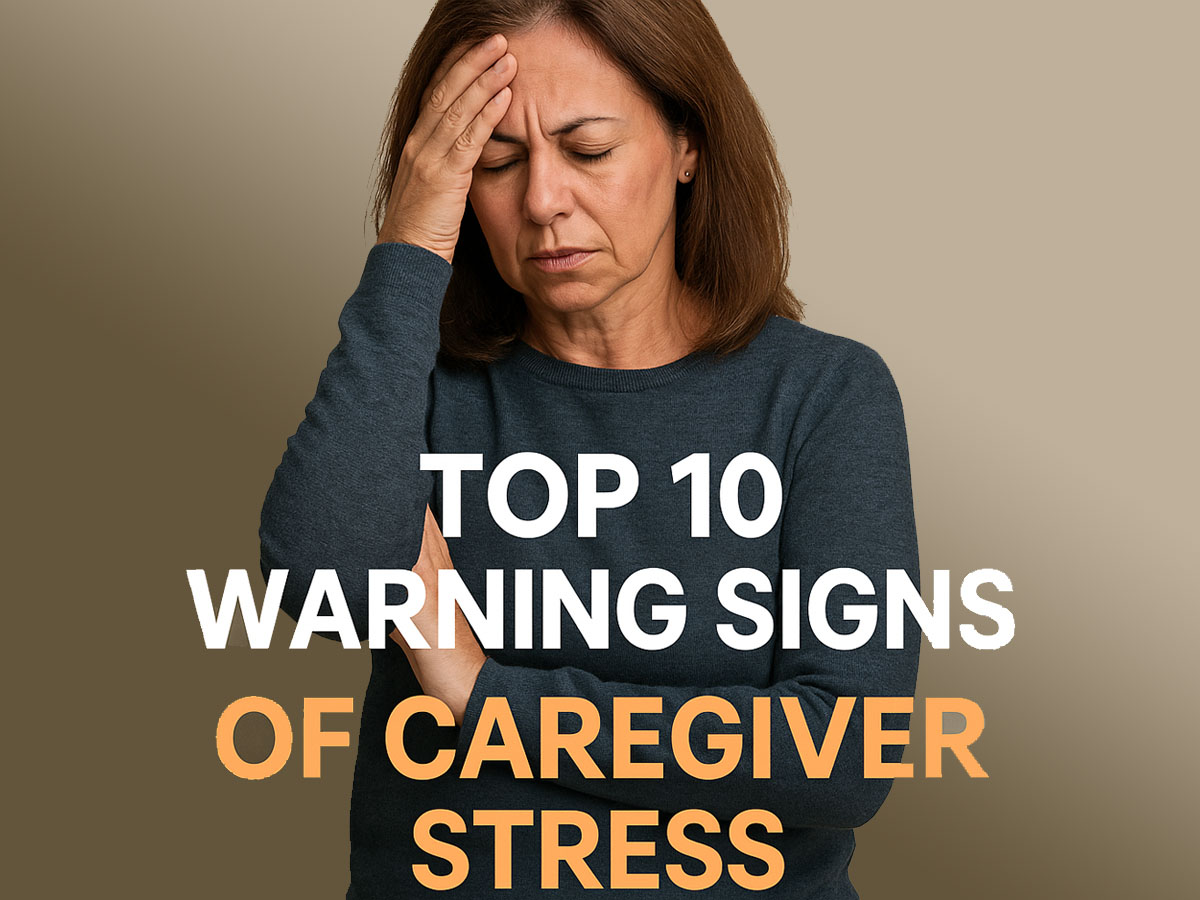In San Diego, I’ve had the honor of meeting some of the most loving, dedicated family caregivers—daughters caring for ageing parents, husbands tending to wives with memory loss, and neighbours stepping up for those without family. At Finding Homecare, I often see how quietly and selflessly caregivers give their all, day after day, without asking for anything in return.
But even the kindest hearts have limits.
Caregiving can be deeply rewarding, but when the emotional and physical weight becomes too heavy, it leads to a silent kind of suffering—caregiver stress. This blog post is here to help you recognise the Warning Signs of Caregiver Stress before it turns into burnout. You’re not alone. And more importantly, you deserve care, too.
What is Caregiver Stress?
Caregiver stress is the emotional, mental, and physical strain that comes from the ongoing responsibility of caring for someone who needs help with daily life, often an aging parent, a spouse with chronic illness, or a child with special needs.
In my years of working with families in San Diego, I’ve seen how caregivers often put their own health, friendships, and even careers on hold to focus on their loved ones. While this comes from a place of deep love and loyalty, it can lead to overwhelming pressure, especially when support systems are limited.
Caregiver stress doesn’t always show up as a breakdown. Sometimes it looks like:
- Losing sleep night after night
- Feeling constantly guilty for not “doing enough”
- Avoiding social gatherings because you’re just too drained
- Or even catching every cold and flu because your immune system is run-down
It creeps in slowly, making it hard to recognise until it’s too late. Understanding the signs and acting early can protect your health and your ability to continue caring with love.
Top 10 Warning Signs of Caregiver Stress
You’re a dedicated caregiver, but are you taking care of yourself? Caregiver stress slowly starts to take its toll on your body, mind, and social life. Many times, we don’t even realise that we’re suffering emotionally. In this section, we’ll highlight 10 important signs to watch out for. Recognising each symptom in time means seeking help for yourself before you reach burnout.
1. Chronic Fatigue
Do you feel like you’re running out of energy at the start of the day? Do you feel sleepy when you sit down for a while during your daily routine? As a caregiver, you may be sacrificing sleep, but it can destroy your health in the long run. If your body is telling you to stop, it’s dangerous to ignore it.
2. Irritability & Sudden Mood Swings
Do you get angry over a small mistake? Do you find it annoying to be around people you used to talk to? Caregiver stress directly affects your emotions. It can not only harm you, but also negatively affect the relationship with the person you are caring for.
3. Social Withdrawal
Not seeing family members, hanging up the phone, or not being interested in socialising can be signs of caregiver isolation. In a vibrant city like San Diego, this feeling of loneliness can lead to depression.
4. Sleep Disturbances
Are you having trouble sleeping at night, or do you feel tired most of the day? Caregiver stress wreaks havoc on your nervous system. Sleep disruption can impair your memory, immune system, and even your ability to control anger.
5. Frequent Physical Aches
Many caregivers experience physical problems like regular headaches, backaches, or acidity due to stress. Mental fatigue directly affects the body since the body and mind are connected.
6. Hopelessness or Sadness
When caregiving feels like a burden, and there is no joy in life, it is not just a sign of exhaustion, but also mental exhaustion. Many caregivers feel at this point, “I can’t take it anymore,” or “This will never end.”
7. Neglecting Self-Care
It’s not a small thing when a caregiver starts to skip meals, body care, or exercise. If you don’t take care of yourself, no matter how good a caregiver you are, you will eventually get sick yourself.
8. Weakened Immunity
Caregiver stress weakens the body’s immune system. This can lead to colds, fevers, infections, or hormonal imbalances. Getting sick repeatedly means your body needs rest.
9. Increased Use of Substances
Many times, caregivers turn to sleeping pills, alcohol, or painkillers to cope with stress. While this may provide temporary relief, it can also harm both mental and physical health.
10. Harmful Thoughts
If you ever feel like, “I want to run away,” “I’m angry at myself,” or “I want to end it all”,—then that’s an emergency sign. At this time, it’s essential to talk to someone and seek professional help.
Why is caregiving so stressful?
Caregiving isn’t just about helping someone; it’s about taking time out of your own life to make life easier for others.
But families in San Diego caring for elderly parents or sick loved ones at home know how demanding this responsibility can be. Let’s take a look at why being a caregiver is so stressful:
- 24/7 Responsibility Pressure: Caregiving is not a fixed shift. It is a responsibility that often requires sacrifices of sleep, time, and even mental peace.
- Losing one’s purpose in life: Many caregivers sacrifice their careers, social lives, and even personal happiness. As a result, long-term caregiving can lead to a loss of emotional balance in life.
- Insufficient support and lack of appreciation: Many caregivers feel that no one values them or understands what they are going through. This isolation gradually builds frustration and anger.
- Financial stress: Caregiving often involves expenses such as medications, healthcare, and routine checkups. Those who do not have their own income face additional financial stress.
- Feelings of sadness, fear, and uncertainty: If the person being cared for gradually deteriorates, the caregiver may feel fear, guilt, and sadness, which can be very stressful.
Easy ways to reduce caregiver stress
When caring for a sick or elderly loved one, we often forget to take care of our own physical and mental health. However, not taking care of ourselves can lead to fatigue, depression, and loneliness—all of which can lead to caregiver burnout.
At Finding Homecare, we believe a caregiver can only properly care for others if they care for themselves.
Engaging in meaningful activities can alleviate stress. Discover our list of 101 Things to Do with Dementia Patients to find enjoyable and therapeutic options.
Additionally, understanding effective communication strategies is crucial. Learn about the Three Golden Rules of Dementia Care to enhance your caregiving approach.
If you need professional assistance, explore our referral Home Caregiver Services to find support tailored to your needs.
Make yourself a priority—it’s not selfish but an essential part of caregiving.
Finding Homecare – Always by Your Side
In this post, we explain how you can stay stress-free with self-care, family support, realistic expectations, and professional help.
Make yourself a priority—it’s not selfish but an essential part of caregiving. Our referred caregivers will be there for you with a custom care plan created just for you, whether you need daily assistance, respite care, or long-term support.
👉 Contact us now—you are not alone, we are with you.
Written By
Lindsay Polis
Founder & CEO, Finding Homecare
San Diego, CA


